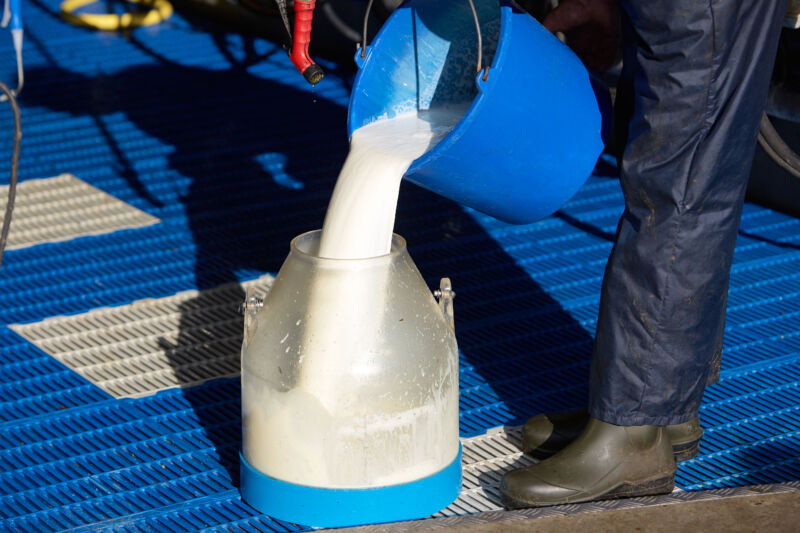Bird Flu Is Infecting Cats (and the Occasional Dog). Here’s What to Know.

© Alex Wroblewski for The New York Times

© Alex Wroblewski for The New York Times

© Jonel Aleccia/Associated Press

Enlarge / Fresh raw milk being poured into a container on a dairy farm on July 29, 2023, in De Lutte, Netherlands. (credit: Getty | Pierre Crom)
Despite the delusions of the raw milk crowd, drinking unpasteurized milk brimming with infectious avian H5N1 influenza virus is a very bad idea, according to freshly squeezed data published Friday in the New England Journal of Medicine.
Researchers at the University of Wisconsin-Madison squirted raw H5N1-containing milk from infected cows into the throats of anesthetized laboratory mice, finding that the virus caused systemic infections after the mice were observed swallowing the dose. The illnesses began quickly, with symptoms of lethargy and ruffled fur starting on day 1. On day 4, the animals were euthanized to prevent extended suffering. Subsequent analysis found that the mice had high levels of H5N1 bird flu virus in their respiratory tracts, as well their hearts, kidneys, spleens, livers, mammary glands, and brains.
"Collectively, our data indicate that HPAI [Highly Pathogenic Avian Influenza] A(H5N1) virus in untreated milk can infect susceptible animals that consume it," the researchers concluded. The researchers also found that raw milk containing H5N1 can remain infectious for weeks when stored at refrigerator temperatures.

© Hans Pennink/Associated Press